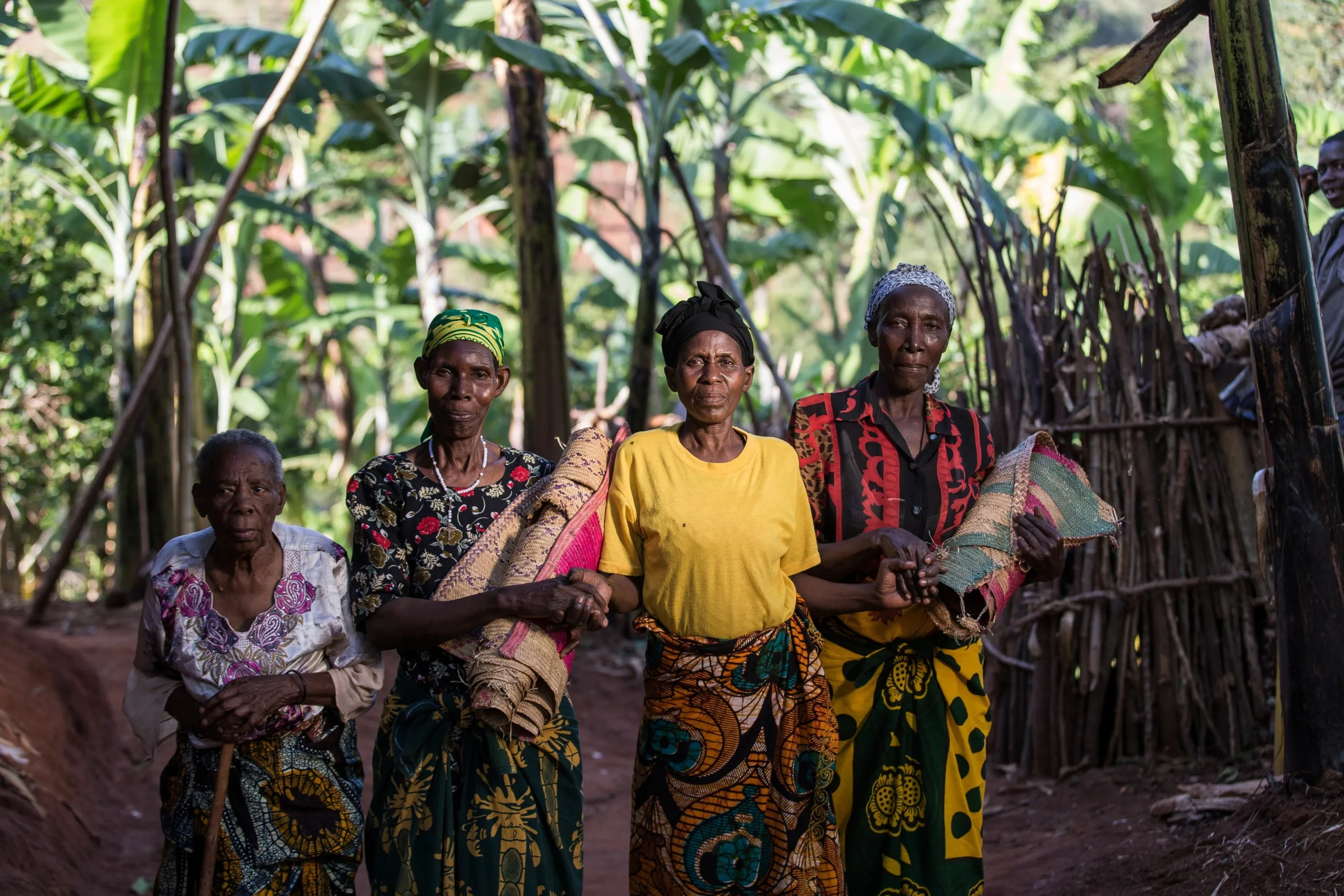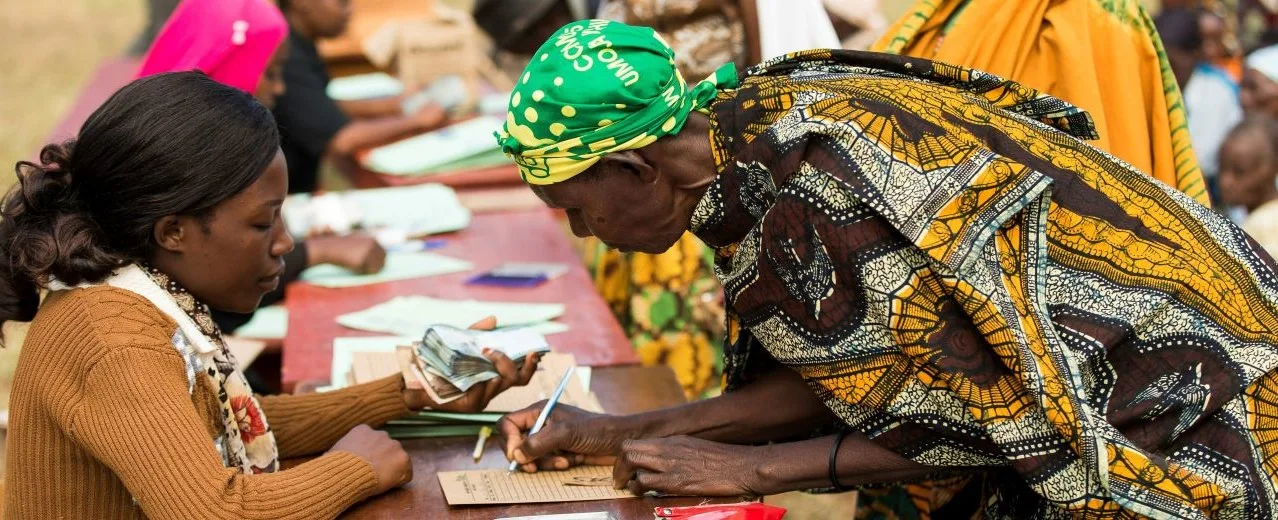 More than just a pension
More than just a pension
With targeted support for a self-determined life in old age
The new month is finally dawning. This means that in Kagera, a region in north-western Tanzania, the monthly pensions are paid out again. Grandmother Aurelia, along with many other elders from the village, makes her way to the disbursement point. Even though the pension Aurelia receives in a month is relatively small, it is enough for the bare necessities: food, soap or paraffin for the lamp at night. If there is some money left over, many grandmothers use part of their pension to pay for their grandchildren's school fees. And even beyond their pensions, the elders in Kagera receive a variety of support, such as seeds or new cooking facilities. Aurelia, for example, is one of those who received her own water tank. "The tank has made my life much easier. Before, I had to walk two hours to the nearest spring and back," says the 76-year-old. She shares the water from the tank with her neighbours as sharing things comes naturally to Aurelia.
Necessity
Social protection for older people, especially older women, in Tanzania
Activity
Payment of monthly pensions and other support services for the senior women
Countable effort
Number of senior women supported by the programme
Result
More older women are financially more independent, have better health and can provide schooling for their grandchildren
Systemic effect
The social security of older women in Tanzania and the future prospects of their grandchildren have improved
Background
In Tanzania there is no statutory pension system like in Germany. Therefore, many older people are dependent on working even at an advanced age. If this is not possible, for example due to physical impairments, they are dependent on their families or even have to go begging. Older women in particular often have no security in old age. They are usually responsible for household chores and caring for family members – a grandmother who looks after and raises her grandchildren every day has, in a sense, an unpaid full-time job. There is hardly enough time to work for pay on top of that. According to research, older women even take on twice as much unpaid care work as older men (HelpAge, 2018). In Germany, too, women are more likely to be affected by poverty in old age. Here, too, this is often related to the family situation, but is additionally due to the differences in professional salaries between women and men (BMFSFJ 2021). In Tanzania, the double burden of work often brings negative consequences such as physical and mental exhaustion for the women. And this in turn also affects those around them, i.e. the grandchildren and the other family members. Yet grandmothers are the ones who are usually responsible for keeping the family together (HelpAge, 2018). For many grandmothers, a secure income, financial independence and support through various additional services, such as Aurelia’s water tank, are therefore not only an economic help, but they also increase the women’s self-esteem, their standing in the community as well as their independence from others. In order to also convince the national government in Tanzania of the benefits of a pension system, the pension programme in Kagera is even considered a political pilot project.
The good deed
The good deed today enables senior citizens to receive exactly the support they need in everyday life. They receive a monthly pension that they can use according to their individual needs: to buy food, medicine or pay the school fees for their grandchildren. In addition, water tanks and cooking facilities are set up in selected households to make everyday life easier for the elderly. Additional benefits are created through self-help groups and savings funds: Loneliness is counteracted, tips for healthy nutrition in old age are shared, eye surgeries are made possible, self-defence courses and training on agricultural cultivation methods are offered, seeds and goats are distributed, and privately organised savings funds are used to create reserves for acute emergencies, e.g. for repairing a house. In addition, there is the possibility of receiving legal assistance for legal issues. In this way, you help the senior citizens in Tanzania to live more independently and self-determined lives.

About Tanzania
Dodoma
Capital
65,497,748
Number of inhabitants
1,192.4
Gross domestic product per capita per year
0,549
Human Development Index
About 125 different languages are spoken in Tanzania. In Kagera, a dialect of the official language Swahili is spoken - "Thank you" is called "Wakola" here.
About the organization and further information
Association
HelpAge Deutschland e.V.
Website

Further information and source
- HelpAge Deutschland e.V., 2018. Who cares - Warum die Nachhaltigkeitsziele nur durch die wirtschaftliche Stärkung älterer Frauen erreicht werden. Online verfügbar.
- Kwa Wazee Schweiz, 2019. Universal Pensions for older people in Tanzania. Online verfügbar.
- HelpAge International, 2017. Cash transfers and older people's access to healthcare: a multi-countrystudy from Ethiopia, Mozambique, Tanzania and Zimbabwe. Online verfügbar.
- BMFSFJ, 2021. Fast ein Viertel der über 80-Jährigen in Deutschland leidet unter Altersarmut.




